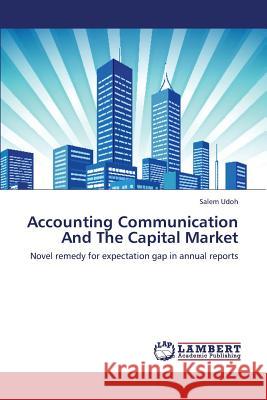Accounting Communication and the Capital Market » książka
Accounting Communication and the Capital Market
ISBN-13: 9783659423413 / Angielski / Miękka / 2013 / 204 str.
Information expectation gap as identified by the pragmatic, normative and contingency schools of accounting theory and confirmed by users sampled in this work still exists in financial reporting. This work prescribes innovative disclosures based on principles of language theory of communication to make financial reports more meaningful to users in terms of understandability and usefulness for investment decisions. This edition part of which was published early 2013 in The MacroTheme Review Journal deepens the initial work started as Masters Thesis in 2008. The work covered in five chapters takes readers through the essence of financial reporting, the existing gaps identified in annual reports including prior remedying efforts, to the novel disclosures prescribed herein for future annual reports. The book will provide more use value therefore to the global investment community, regulators, professional bodies and the academia.
Information expectation gap as identified by the pragmatic, normative and contingency schools of accounting theory and confirmed by users sampled in this work still exists in financial reporting. This work prescribes innovative disclosures based on principles of language theory of communication to make financial reports more meaningful to users in terms of understandability and usefulness for investment decisions. This edition part of which was published early 2013 in The MacroTheme Review Journal deepens the initial work started as Masters Thesis in 2008. The work covered in five chapters takes readers through the essence of financial reporting, the existing gaps identified in annual reports including prior remedying efforts, to the novel disclosures prescribed herein for future annual reports. The book will provide more use value therefore to the global investment community, regulators, professional bodies and the academia.











